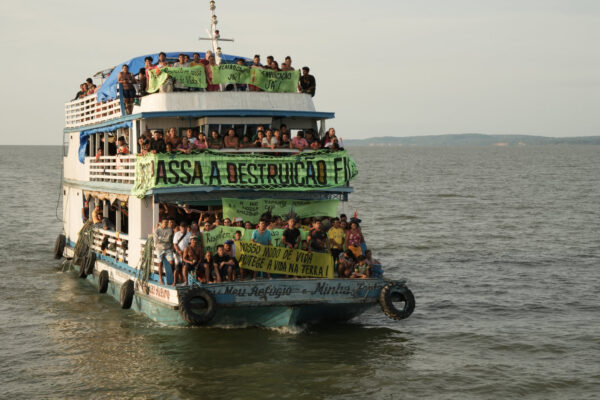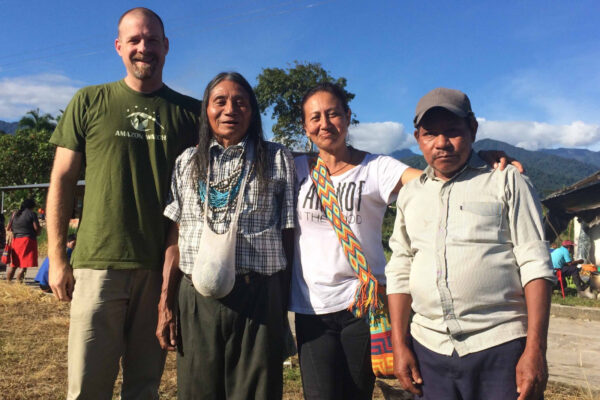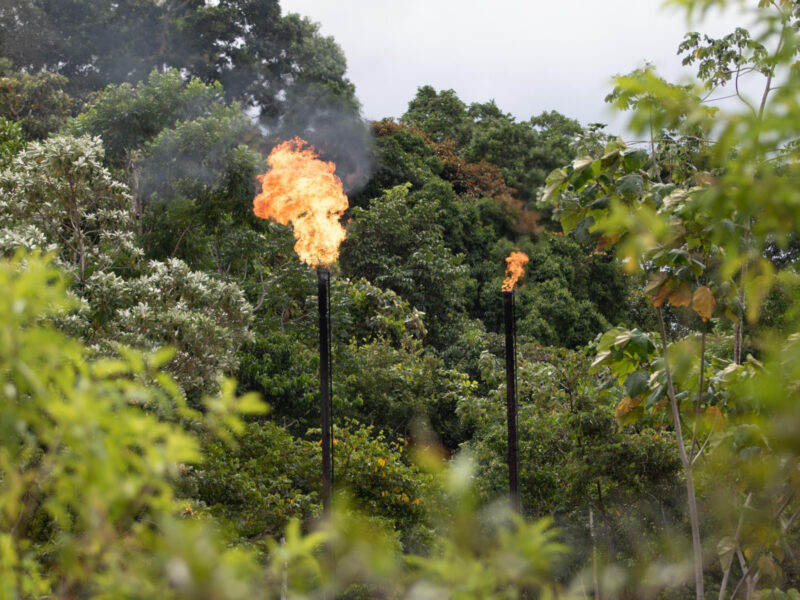In tough economic times, countries in Latin America and the Caribbean have turned to the U.S. taxpayer-supported Inter-American Development Bank (IDB) for loans that help boost national productivity while protecting the environment and vulnerable people.
Now the Washington-based lender, which last year suffered a billion-dollar loss after putting its money into mortgage-backed securities, wants Congress to help pay for a historic $70 billion capital increase to fund projects like development programs in Haiti and environmentally smart mining projects in the Dominican Republic.
But U.S. officials have begun to question the reasonableness of the IDB’s loans amid criticism that its bankers are more focused on securing new deals than making sure existing ones work as planned.
With the U.S. government – the bank’s largest shareholder – considering whether to approve the increase, a Washington Times examination of an IDB-backed natural-gas project in the Peruvian Amazon confirms those criticisms. It reveals that bank officials in 2007 manipulated a technical investigation of a rupture-prone pipeline, producing a fraudulent report that cleared the way for a controversial $400 million loan to a natural-gas export project headed by a Texas oil company.
Carved into Peru’s Lower Urubamba region, a sprawling and largely pristine swath of Amazonian rain forest, the Camisea Natural Gas Project came online in 2004. IDB officials had backed the Camisea consortium, a group of companies including Texas’ Hunt Oil, with a $73 million loan, praising the project as a best-practices example of how to surgically remove oil from a rain forest and fill development coffers.
With chain saws and bulldozers ferried deep into the jungle along muddy rivers, crews built a processing station and two pipelines that extended over the Andes, one leading to the coastal town of Pisco and the other going south to feed Lima. Soon, the Peruvian government was making a natural-gas export deal – known unofficially as Camisea II – with Hunt Oil. To build a $3.9 billion processing plant on the coast, Hunt turned again to the IDB for a $400 million loan.
But problems emerged. Four months after coming online, the main Camisea pipeline that would feed Hunt Oil’s future processing plant ruptured, spilling contaminants into rivers and streams. Eight months later, it happened again; then again 18 days later. By March 2006, the rain-forest pipeline had produced five ruptures – spilling gas, sending three burn victims to the hospital and creating a dark cloud over Camisea II’s prospects.
Other complications emerged. In February 2006, as critics pressed the IDB to explain Camisea’s pipeline problems before backing Hunt’s export project, a California-based nonprofit engineering firm, E-Tech International, presented bank officials with a bombshell.
Bill Powers, E-Tech’s president and an engineer, came forward with a detailed report claiming that the company that built the leaky pipeline had cut corners to avoid some $90 million in costs. He said the company – known by its Spanish acronym as TgP – violated the bank’s loan agreement by using pipes that had deteriorated owing to inadequate storage before their use in the project.
Mr. Powers – who based his report largely on testimony, documents and photos provided by a Peruvian welding inspector who worked on the leaky pipeline – also claimed that TgP used unqualified welders and that it had changed the pipeline route without the bank’s approval.
Weeks later, according to internal IDB e-mails, Mr. Powers’ allegations were supported by Peruvian engineer Alfredo Arana, who offered to provide supporting photos and documentation for both men’s claims.
Interviews with former and current bank staffers, as well as dozens of pages of internal bank documents obtained by The Times, paint a picture of bank officials scrambling to deal with the E-Tech report and clear the way for Camisea II.
The bank’s Office of Institutional Integrity (OII) hired R.W. Beck Inc., a Denver-based engineering firm, to investigate Mr. Powers’ claims. On Aug. 16, 2006, the company turned in a draft report. The then-head of OII, Stephen Zimmerman, ordered a contracted investigator to review the report to determine whether it addressed the bank’s issues. In a Sept. 29 memo, that investigator, lawyer Maria Contreras, told Mr. Zimmerman “that Beck did not seem to give the issues raised by OII any great importance.”
Ms. Contreras wrote that Beck had not looked into the qualifications of the welders, whether the pipes were new at the time of installation or if the pipeline route was altered to defray costs. What’s more, she wrote, the appropriate experts hadn’t even gone into the field to inspect the leaky pipeline.
The pipeline report still raised several concerns that echoed those of E-Tech. About the welders, for example, it noted that the same inspector issued welding certificates at two different locations on the same day. About the purported changes in the pipeline route, Ms. Contreras stated that the Beck report “dismisses the allegations rather summarily.”
Months later, with the Camisea II decision looming and the pipeline’s integrity still in doubt, Beck consultants working in Lima found themselves locked in a problem: TgP failed repeatedly to produce all of its welding records. And the documents it did hand over showed that even more welders than previously thought lacked qualifications.
Addressing the issue in e-mail to an IDB staffer, Ms. Contreras stated: “The importance of all this goes beyond the welder qualifications and more to the reliability of the information being produced … it puts all other data produced by them under a cloud of uncertainty.”
Hunt Oil did not offer comment for this report. An R.W. Beck spokeswoman deferred questions to managers at the IDB.
In April 2007, Mr. Zimmerman sent Ms. Contreras to Lima with OII staffer Jose Casasola and gave them both only one week to report back. What’s more, he gave them no specific instructions. “It was clear at that point that the bank was not interested in a real investigation,” said the bank staffer. “They only wanted Camisea II’s big numbers.”
When Ms. Contreras returned on April 27, she voluntarily left the bank at the end of her contract.
“This left Zimmerman and Casasola in a bind,” said Beatrice Edwards, a researcher with the Government Accountability Project, a Washington-based group that protects government whistleblowers, who said she has interviewed bank staff about the investigation. “They cobbled together a report dismissing the E-Tech and leaving still unanswered questions and allegations.”
On May 2, 2007, in a meeting including Mr. Zimmerman, Mr. Casasola and the IDB’s Oversight Committee on Fraud and Corruption, it was determined there was “insufficient evidence to warrant any further investigation” of E-Tech’s allegations, according to minutes from the meeting. The officials also determined that the Beck report, “in light of objections expressed by TgP,” would not be made available to the public.
Seven months later, after dismissing the E-Tech report and giving the leaky pipeline a stamp of approval, the IDB approved the $400 million loan for Camisea II.
“OII received and investigated allegations of fraud and corruption in connection with the Camisea project,” an IDB spokesman said in an e-mail. “The results of that investigation were communicated to the complainants, in writing, in May 2007.”
“What if the OII investigators had done the digging necessary to confirm that TgP had in fact utilized pipe left over from other projects in the Camisea pipelines, and that in fact these leftover pipes had played a material role in one or more of the pipeline ruptures?” Mr. Powers said in e-mail. “It would have likely killed the IDB financing for Camisea II.”
While there have been no reported leaks since March 2006, Mr. Powers told The Times there is generalized, accelerated corrosion in the jungle section of the pipelines. “The only effective way to deal with that is rip out and replace, constantly patch until you must rip out and replace, or propose a whole new right-of-way and pipeline project that substitutes for the jungle section of the original project,” he said in an e-mail.
E-Tech’s technical allegations weren’t the only problems to surface: There also were allegations of corruption that the bank’s Oversight Committee on Fraud and Corruption received but failed to investigate.
In the summer of 2006, two OII investigators sat down with a former Peruvian energy minister named Carlos Herrera Descalzi. Mr. Herrera – who oversaw Camisea contracts as the country’s energy minister under a transition government during 2000 to 2001 – made startling allegations.
In two bank documents, OII investigators reported that Mr. Herrera claimed that Hunt Oil had paid Peruvian officials to change a national hydrocarbons law that would have required the Peru Liquid Natural Gas (LNG) project to restrict its exports based on domestic energy needs. One of the reports states in Spanish that “Herrera asked for confidentially in these matters and has handed over a good deal of documentation” to support his allegations that Peruvian law had been changed to favor the Hunt Oil-led consortium.
Even so, an IDB spokesman said this week the bank had not received allegations of fraud and corruption related to Peru LNG. What’s more, in an internal document written by Mr. Zimmerman in 2008, the then-OII chief reported having a conversation with an attendee at the IDB’s annual meeting in 2008. Mr. Zimmerman wrote that the person expressed concerns about “possible inappropriate changes in Peru’s legal framework to favor certain companies.”
“I told her that it was beyond the reach of OII, and we were unable to investigate the concerns,” he added.
When asked recently if the IDB ever investigated Mr. Herrera’s claims of corruption or passed the allegations to appropriate officials, the IDB spokesman offered no comment.
At press time, a source at the bank said IDB officials, after receiving questions for this report, warned staffers not to speak to reporters and instructed the OII to open an investigation of the Camisea contracts.
“Given the confidentiality of the investigative process under the IDB’s rules and procedures, OII is restricted from confirming or denying the existence of any ongoing investigation,” the IDB spokesman said when asked about the claim.













